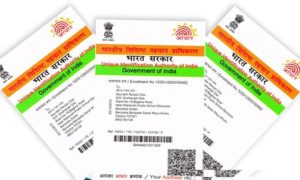The platform would help would enable the delivery of frictionless credit by facilitating a seamless flow of required digital information to lenders.
Also Read– NCCF, NAFED to sell tomatoes at Rs 50/kg
New Delhi: The Reserve Bank of India (RBI) is launching a pilot project for ‘Public Tech Platform’ for frictionless credit. The platform is being developed by the Reserve Bank Innovation Hub (RBIH), a wholly-owned subsidiary of the central bank. The platform would help would enable the delivery of frictionless credit by facilitating a seamless flow of required digital information to lenders. The platform is intended to be rolled out as a pilot project in a calibrated fashion, both in terms of access to information providers and use cases.
Public Tech Platform For Frictionless Credit: How Will It Work
The end-to-end digital platform will have an open architecture, open Application Programming Interfaces (APIs) and standards, to which all financial sector players can connect seamlessly in a ‘plug and play’ model, the RBI said.
RBI said with rapid progress in digitalisation, India has embraced the concept of digital public infrastructure which encourages banks, NBFCs, FinTech companies and startups to create and provide innovative solutions in payments, credit, and other financial activities.
Also Read– RBI likely sold dollars to keep rupee from record low: Traders
For digital credit delivery, the data required for credit appraisal are available with different entities like central and state governments, account aggregators, banks, credit information companies, and digital identity authorities. However, they are in separate systems, creating hindrance in timely delivery of rule-based lending.
During the pilot, the platform would focus on products such as Kisan Credit Card loans of up to Rs 1.6 lakh per borrower, dairy loans, MSME loans (without collateral), personal loans and home loans through participating banks, the RBI said.
Key Benefits
The platform would enable linkage with services such as Aadhaar e-KYC, land records from onboarded state governments (Madhya Pradesh, Tamil Nadu, Karnataka, Uttar Pradesh, and Maharashtra), satellite data, PAN validation, Aadhaar e-signing and house/property search data, among others.
Also Read– Tax Benefits On Life Insurance Policies: Check Income Tax Dept’s Latest Guidelines
Based on the learnings, the scope and coverage would be expanded to include more products, information providers and lenders during the pilot, the RBI said.
It would bring about efficiency in the lending process in terms of reduction of costs, quicker disbursement, and scalability.





































